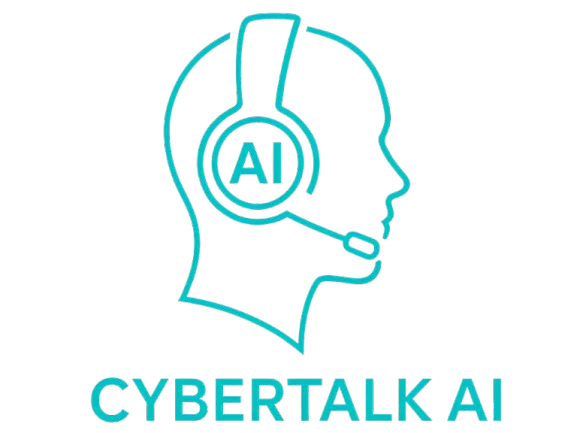In today’s fast-paced digital economy, AI Receptionists for Business are transforming how companies handle customer interactions, streamline operations, and scale efficiently. From small startups to large enterprises, business owners are increasingly adopting AI-powered solutions to manage calls, schedule appointments, and provide 24/7 customer support. By leveraging advanced technologies such as natural language processing (NLP), machine learning, and AI voice agents, organizations can deliver seamless communication experiences while reducing operational costs.
What is an AI Receptionist and How Does It Work?
AI Receptionists for Business are intelligent, software-driven systems designed to replicate the role of a human receptionist. Immediately after this definition, it’s important to note that these tools combine speech recognition, conversational AI, and automated workflows to handle tasks such as answering calls, routing inquiries, and capturing leads. Unlike traditional receptionists, AI receptionists operate around the clock, ensuring no customer call goes unanswered.
These systems rely on AI virtual assistants and AI voice agents to interpret customer intent, respond naturally, and escalate complex issues to human staff when necessary. By integrating with CRM platforms, VoIP systems, and scheduling tools, they provide a unified communication hub that enhances both customer experience and internal efficiency.
Why Do Businesses Need AI Receptionists?
The demand for AI receptionists has surged because businesses cannot afford to miss calls or delay responses. Studies show that nearly half of small businesses lose revenue due to poor call management. Customers expect instant communication, and a single missed call can mean a lost opportunity.
AI receptionists solve this challenge by offering 24/7 availability, multilingual support, and consistent professionalism. They also reduce the workload on human employees, allowing staff to focus on higher-value tasks. For industries like healthcare, real estate, and legal services, where timely communication is critical, AI receptionists provide a competitive edge.
Key Features of AI Receptionists for Business Owners
Modern AI receptionists come equipped with a wide range of features that make them indispensable:
- Call Handling & Routing: Automatically answers and directs calls to the right department.
- Appointment Scheduling: Syncs with calendars to book and confirm meetings.
- Lead Capture: Collects customer details and integrates them into CRM systems.
- Natural Conversations: Uses NLP to engage in human-like dialogue.
- Scalability: Handles high call volumes without additional staffing costs.
These features ensure that businesses can maintain professionalism and responsiveness even during peak hours.
How Do AI Receptionists Compare to Human Receptionists?
| Feature | AI Receptionist | Human Receptionist |
| Availability | 24/7, no breaks | Limited to working hours |
| Cost | Subscription-based, scalable | Salary, benefits, training required |
| Consistency | Always professional, no fatigue | May vary with mood or workload |
| Multilingual Support | Supports multiple languages instantly | Requires hiring multilingual staff |
| Integration | Connects with CRM, VoIP, scheduling apps | Manual data entry |
While human receptionists bring empathy and personal touch, AI receptionists excel in efficiency, scalability, and cost-effectiveness. Many businesses now adopt a hybrid model, combining both for optimal results.
How AI Receptionists Are Revolutionizing Customer Service?
One of the most significant impacts of AI receptionists is their ability to transform customer service. By providing instant responses, reducing wait times, and personalizing interactions, they enhance customer satisfaction and loyalty.
For entrepreneurs, this shift is particularly valuable. As highlighted in How AI Receptionists Are Revolutionizing Customer Service for Entrepreneurs, these tools empower small business owners to compete with larger enterprises by offering enterprise-level communication without the overhead costs.
What Are the Costs of Implementing AI Receptionists?
The cost of AI receptionists varies depending on features, call volume, and provider. Subscription models typically range from affordable entry-level plans for small businesses to enterprise-grade solutions with advanced integrations.
| Plan Type | Cost Range |
| Basic | $29.99/Month |
| Professional | $99.99/Month |
| Enterprise | $249.99/Month |
While upfront costs may seem high, the long-term savings from reduced staffing and improved customer retention often outweigh the investment.
How Secure Are AI Receptionists?
Security is a top concern for business owners. AI receptionists use encryption, secure APIs, and compliance frameworks such as GDPR and HIPAA to protect sensitive data. Providers also offer customizable access controls, ensuring that only authorized personnel can view or manage customer information.
This makes AI receptionists not only efficient but also trustworthy for industries handling confidential data.
Future Trends in AI Receptionists
The future of AI receptionists is shaped by advancements in conversational AI, predictive analytics, and voice biometrics. Soon, AI receptionists will not only answer calls but also anticipate customer needs, provide proactive solutions, and integrate with emerging technologies like augmented reality (AR) and the Internet of Things (IoT).
As businesses continue to embrace digital transformation, AI receptionists will become a standard part of customer engagement strategies.
FAQs (Frequently Asked Questions)
1. Can AI receptionists replace human receptionists entirely?
Not entirely. While AI receptionists handle routine tasks efficiently, human receptionists are still valuable for complex, sensitive, or highly personalized interactions.
2. Do AI receptionists support multiple languages?
Yes, many AI receptionists offer multilingual support, making them ideal for businesses with diverse customer bases.
3. How do AI receptionists integrate with existing systems?
They connect seamlessly with CRM platforms, VoIP systems, and scheduling tools, ensuring smooth workflows.
4. Are AI receptionists suitable for small businesses?
Absolutely. Small businesses benefit greatly from AI receptionists as they provide enterprise-level communication at a fraction of the cost.
5. What is the difference between an AI receptionist and an AI virtual assistant?
An AI receptionist focuses on call handling and customer communication, while an AI virtual assistant may also handle broader tasks like email management, research, and administrative support.
Conclusion
AI Receptionists for Business are no longer a futuristic concept—they are a present-day necessity for companies aiming to stay competitive. By combining efficiency, scalability, and advanced communication capabilities, they empower business owners to deliver exceptional customer experiences while reducing costs. For organizations ready to embrace this transformation, CyberTalk AI is providing this service with cutting-edge solutions tailored to modern business needs.
